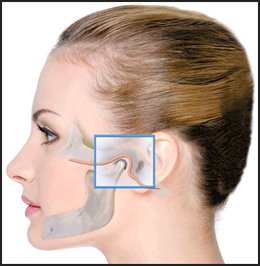Pain on Left Side – Is There a Real Reason For it?

Left side pain often originates from heartburn, acid or gas
This gas is formed inside your stomach and intestines and then travels up into the upper chest and presses against the ribs, causing you to feel chest pain from the left side.
The two main causes of left side pain are gastroesophageal reflux disease (GERD) and gastric reflux. These two conditions occur when a valve between the stomach and esophagus does not function properly and causes food or fluid to flow back into the esophagus. This is not a serious condition and can be cured.
Another cause of pain on the left side is ulcers, which often occur in the stomach or duodenum. These ulcers are caused by acid that builds up inside the stomach and prevents it from draining normally. It also leads to ulceration of the lining of the esophagus and stomach.
The pain of an ulcer on the left side is different from pain on the right side because the ulcer is located in the area of gastric emptying. This means that the contents of the stomach will drain through the esophagus into the duodenum.
Treatment for both conditions will depend on the cause of the pain and its severity. You should see your doctor if your pain persists after trying to correct the cause.
The first step in treating left side ulcer pain is to make sure the ulcer is diagnosed. You can collect a complete medical history to make sure it is indeed an ulcer and not another problem.
Common treatments include medications, such as antacids, to help relieve symptoms. Some patients may also respond to surgery.
If you think you are experiencing pain in your left side and are wondering why you have it, you should try to determine what may be causing it. Your doctor can help you find the answer. You can find more information on the treatment of the disease on the website Benakat.
However, sometimes symptoms persist even after you have tried to treat the underlying problem. In this case, it is important to seek medical attention. Your symptoms may indicate more serious problems. Such problems can include digestive disorders, colon cancer, or other medical conditions.

To find out if a possible problem is causing your symptoms, your doctor will conduct a physical examination. This will help him or her identify the problem and give you the treatment that you need.
In order to determine whether the pain on the left side is caused by gastro esophagitis, a blood test is done. A blood test can show if there is inflammation of the esophagus.
Another test is to look at your stomach in order to see if you have a gastric reflux problem. If the pain persists after you have eaten, then you might have stomach reflux disease.
For people with chronic heartburn, symptoms include soreness, burning, and regurgitation. If you experience pain in the chest while breathing, you could have hiatal hernias. Other problems that cause symptoms in the left side include gallstones, ulcer formation in the upper abdomen, and gallbladder issues.
The best way to avoid the symptoms of these conditions is to eat a healthy diet and take preventative measures. If the pain on the left side is persistent, or if your symptoms do not go away after a few days, you should contact your doctor to get the necessary treatment.
If you have had surgery for your heart or you have had a major operation, or if you are diabetic, you might have left side pain. This can also be caused by the presence of scar tissue around your heart valve, which can result from an underlying heart problem.
If you have undergone any surgical procedures such as cardiac bypass or stent placement, the presence of scar tissue can also contribute to left side pain. In this situation, it is a good idea to consult your doctor for advice and recommendations about the best way to treat it.
If left side pain persists after trying to treat the underlying problem, you should consider getting help from your doctor. If your doctor does not find the underlying cause, you should discuss your options with him or her to find the treatment that is best suited to your particular case.
